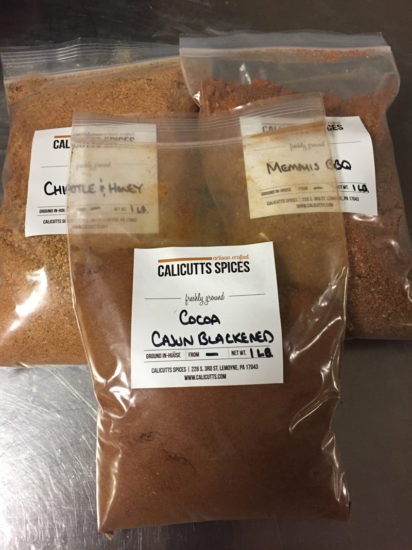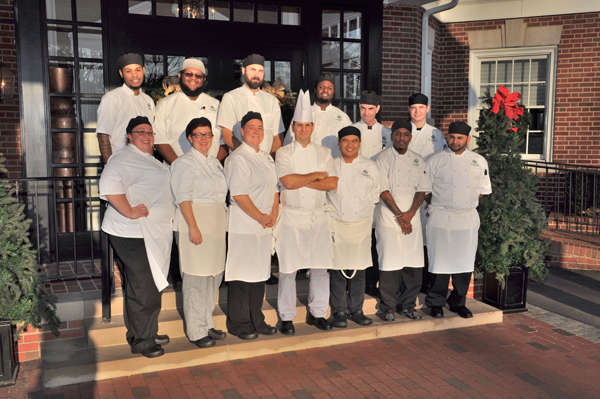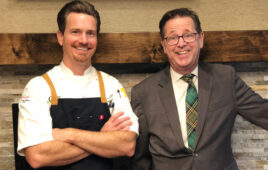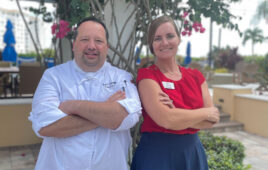How club chefs are overcoming the shortage of skilled culinary talent that can step right up to the plate.
Clubs across the country are facing difficult labor challenges in their dining operations. Open positions abound, from qualified cooks to dishwashers to sous and pastry chefs.

The Metropolitan Club of Washington, D.C.’s Executive Chef Vincent Horville (far left) hires cooks with a strong work ethic.
This topic often gets club chefs fired up, too. Many lament that they’ll place an ad, get a dozen resumes, set up interviews and not one applicant will show. Or they’ll get stuck in a relentless interview/hire/fire cycle that eats away precious hours of time.
“Labor challenges are omnipresent,” says Vincent Horville, Executive Chef of The Metropolitan Club of the City of Washington, D.C., who draws from the same labor pool as thousands of D.C. restaurants, institutions and clubs. “The only way to survive is to be adaptable.”
At The Metropolitan Club, Horville does $5 million in F&B revenue with 2,700 members. He has a staff of one executive sous chef, one full-time pastry chef and a pastry assistant, one purchasing agent who doubles as a butcher and sous as needed, two AM/PM shift cooks, 13 full-time cooks and eight to ten utility staff members, depending on the time of year.
“These individuals are valuable to me and our club, because they understand that our business is all about taking care of the needs of our members,” says Horville.
But challenges remain.
“I caution club chefs to set expectations early with new hires, manage them consistently and follow through every step of the way,” Horville says. “How you communicate what you’re trying to achieve is critical. And it can be perceived differently for each person on your staff.
“I find myself compromising more now than ever before,” he continues. “Labor is more complicated. Some staff members want to be pushed [while] others are too sensitive for that—so as the chef, I must adapt and implement plans and processes that work across the board.”
Brian Bernstein, Executive Chef of Algonquin Golf Club (St. Louis, Mo.), agrees.
“You’re only as strong as your worst cook,” he says, adding that his biggest dilemma is finding qualified cooks in the first place. “A lot of kids coming out of school have a couple of culinary tricks that they can do well. But they have inflated egos that aren’t appealing. Don’t get me wrong; tricks are great. But not if you don’t know the fundamentals of cooking.”
Too often, Bernstein talks with culinary grads who are able to glue a steak to a piece of salmon, but have no idea how to make a classic béarnaise.
“This industry can be a hard sell,” says Bernstein, who has been with Algonquin for 11 years. “We work when our friends and family are on vacation. So as the chef, it’s critical for me to make sure I spread out who works what holidays, to help my cooks achieve some kind of work/life balance.”
Teamwork is an ongoing theme at Metedeconk National Golf Club (Jackson, N.J.), where Executive Chef Mark Caravella strives to retain top-quality staff members despite an annual three-month closure from mid-December through mid-March.
“Getting new hires to understand that my dishwasher is just as important as my sous chef can be a challenge,” says Caravella. “But we’re all on the same team, and we all have to work together.”
What to Look for in New Talent
“Attitude is my prime concern,” says The Metropolitan Club’s Horville. “It doesn’t matter to me how many times you’ve staged with a big-name chef or how many years you’ve been studying the trade. The go-getters and the do-ers have passion, drive and a proven track record. For me, that’s critical.”
The Club at Ravenna’s staff is made up of (l. to r.) Drake Sigler, Josh Lacey, Christopher Moore, and Michaela Elliott.
Christopher Moore, Executive Chef of The Club at Ravenna (Denver, Colo.), follows the same must-have list. “A person can look good on paper, but I need to see passion and a productive attitude,” he says. “I want someone who is willing and eager to learn. They also must have integrity and be able to admit failure.”
Personality and professionalism are important to Metedeconk’s Caravella, too. “This is a professional kitchen and we treat one another with respect,” he says. “I will not accept anything less.”
Support Makes All the Difference
Typically, club chefs have the autonomy to hire and fire as needed. But having the support of the General Manager and the Board can go a long way toward making the process more palatable.
“Our owner and GM know that we’re a culinary training ground,” says Ravenna’s Moore, who works with local culinary schools to develop apprentices and interns. “They also support the various ways I challenge and reward my cooks.”
For example, Ravenna has become known for its homemade soups, and Moore often puts the onus of creating one for the daily feature on his cook’s plate. “Whoever comes up with the soup gets to go out and talk with our members about how they came up with it and why it works,” he says. “This not only gives them something to be proud of, it teaches them how to interact with members in a less-intimidating way.”
For Algonquin’s Bernstein, having the support of the GM to network and participate in other parts of the industry has proved to be especially useful when hiring.
“I’m one of the co-coaches of St. Louis’ Junior Culinary team,” he says. “So when a cook sees or recognizes my name or the club’s name, it sparks some interest. It has helped us attract new talent on a number of occasions.”
Keeping Good People
With a tight labor market, there are plenty of jobs to go around and it is easy to change jobs—too easy, in fact. So what keeps good people?
“Cooks want to be included in decisions and be challenged in their careers,” says Horville, who is a big proponent of the benefits of promoting from within. “They already know the business, you already know them, and it shows both them and the rest of the staff that hard work pays off.”
Caravella agrees that challenging employees and inspiring them to grow and become better is the best way to keep them.
“Your staff is full of individuals with creative ideas,” he says. “Listen to their ideas, use those ideas when they’re good, and give them credit. Admit that you can’t do it alone. It will only do everyone good in the end.”
Sometimes, though, it’s better to push your best cooks beyond their current post. “My executive sous chef has been with me for four years,” says Bernstein. “He’s ready to take on his own kitchen. I fully support him moving on, and I’ll help him in whatever ways I can.”
And when he does land a new gig, Bernstein has a list of cooks ready to step up into the open position.
“Whoever is going to do the best job is going to get the position,” he says.





